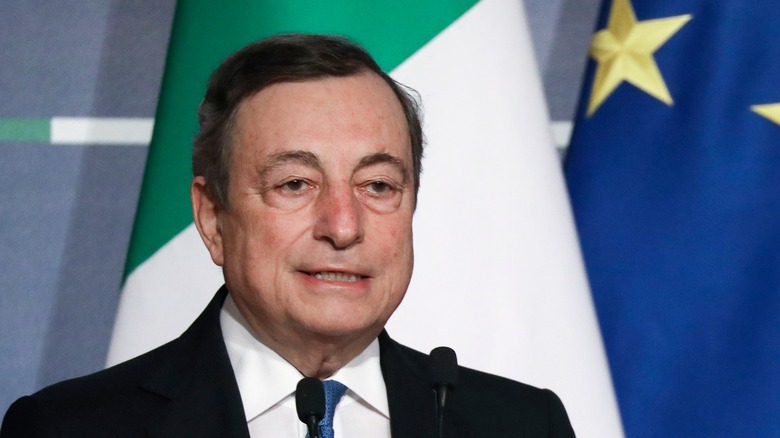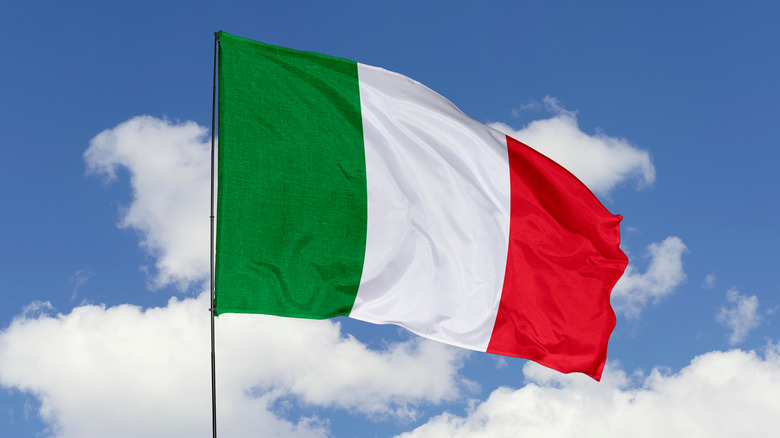What Effect Will Italian Prime Minister Mario Draghi's Resignation Have On Italian Politics?
On July 21, 2022, according to Al Jazeera, Italian Prime Minister Mario Draghi tendered his resignation, throwing Italian politics into chaos and paving the way for a right-wing coalition to take over the Italian government in a few weeks. The next elections are scheduled for this fall, and Draghi's government will remain in a "caretaker role" until that time.
By most measures, Draghi's tenure as Prime Minister was a success, according to The Guardian. When he took over the role, Italy was still reeling from the devastating effects of the Covid-19 pandemic. Further still, Draghi was instrumental in helping Italy secure €200 billion (about $204 billion) in European Union post-pandemic recovery money. "[The Draghi government achieved] more in 18 months than any government did in the past 30 years," said Riccardo Magi, the president of a small left-wing party.
However, the worst of the Covid-19 pandemic was over by July 2022, and the devastating illness was about all that was holding Draghi's coalition together, says Magi. "That was the only thing that brought the parties together during the first few months," he said. "After that, there was no more common goal."
The Specifics
Mario Draghi and his coalition may have been instrumental in leading Italy into the waning days of the Covid-19 pandemic, and in helping Italy recover from the devastating illness, but in the end it was squabbling from within his own party that did him in, reports The Guardian.
Specifically, a populist coalition known as the Five Star Movement (M5S) set into motion the series of events that would lead to Draghi's downfall, by refusing to back his expensive cost of living package. The deal would have helped Italians suffering from the effects of inflation, but the boycott of the vote was essentially a vote of no confidence. Two other coalitions then expressed their lack of confidence in Draghi, in this case by refusing to help him govern until his term of office would have naturally expired next spring. "M5S triggered the bomb, the other two added the final bomb," said Magi.
Part of the reason Draghi's supporters left him in the lurch may have been his lack of skill as a politician. Draghi came into the Italian government as a businessman, not as a politician, and it cost him, says Catia Polidori, a deputy with one of the coalitions that abandoned him. "Let's just say that not being a politician was a limitation, because it meant he wouldn't listen to parliamentarians and their proposals," she said.
A 'Boomerang Effect'
With Draghi's government having failed and elections scheduled to take place in the fall, it appears as if a right-wing party may be poised to take over things on the Italian Peninsula, according to Courthouse News.
The far-right Brothers of Italy party, and its leader Giorgia Meloni, are currently leading the polls in Italy, which means that Italy may soon be governed by a party borne out of Italy's transition from fascism. Oddly enough, just a few months ago, this party was seen as a fringe group, according to The Guardian, only getting four percent of the vote. Meloni, who may very well become Italy's first female prime minister, opposes gay marriage, wants to curtail immigration, and has expressed admiration for Vladimir Putin, according to Courthouse News.
Two other right-wing parties are also in the mix, according to Al Jazeera: Forza Italia and Matteo Salvini's League. Should those three form a coalition, Italy's next government could be dominated by the right wing.
Magi hopes that Italians learn a lesson from the collapse of Draghi's government. "I hope that, after the way in which the Draghi government collapse played out," he said, "Italians realize how much damage these political forces have done. The collapse of his government could have a boomerang effect."


